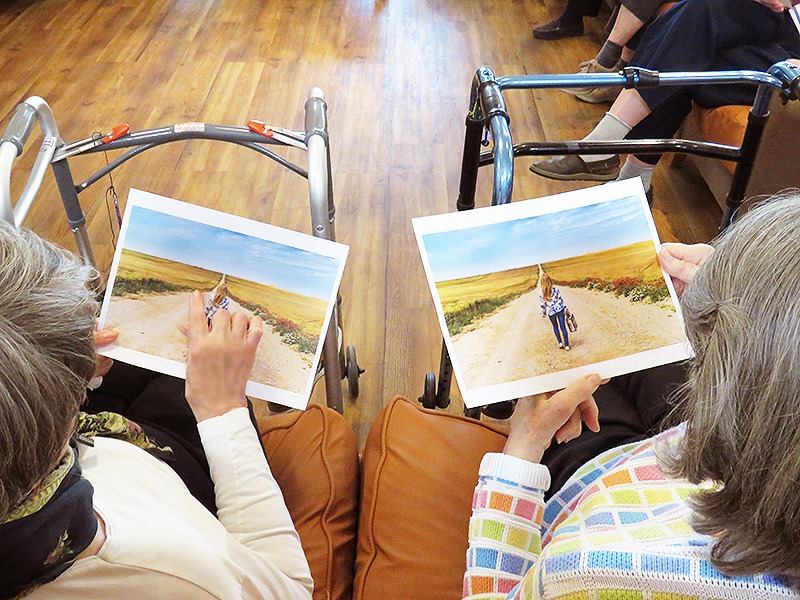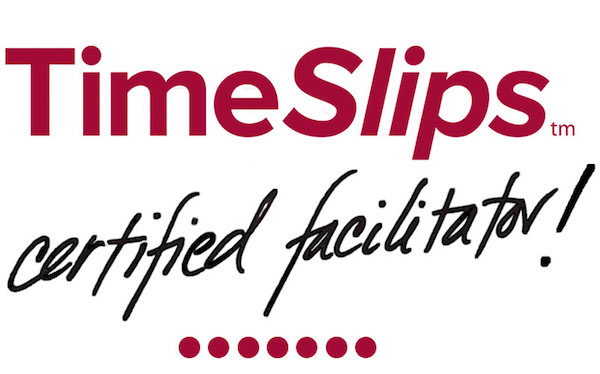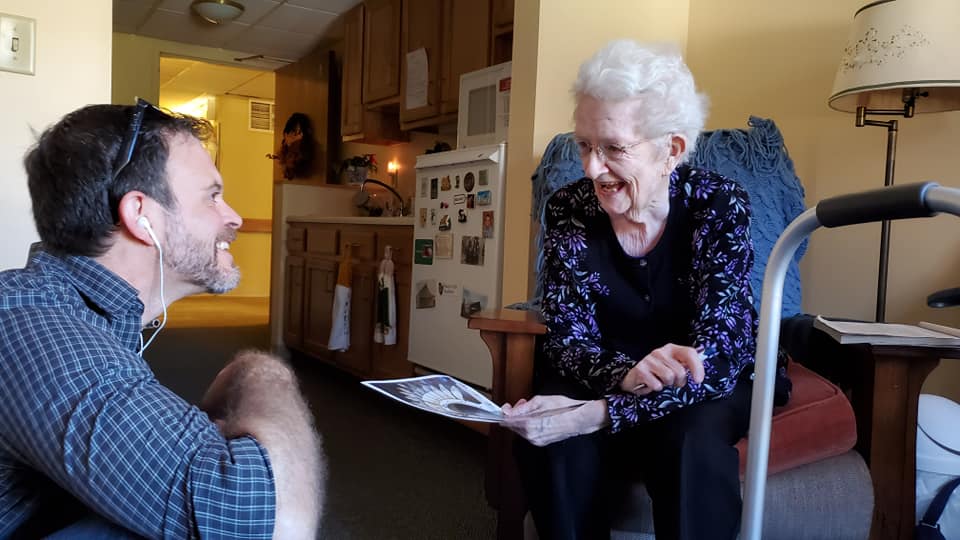TimeSlips Creative Storytelling
TimeSlips is a collaborative storytelling format designed by MacArthur Fellow Anne Basting for use by people with cognitive disabilities like dementia. Creativity is an ideal way for people with cognitive challenges to communicate. TimeSlips is developed as a ritual so people with memory loss can learn it through their subconscious or implicit memory. It is based on shifting the emphasis from memory to imagination.

Photograph courtesy of OceanView at Falmouth.
TimeSlips works best with people in the mid-to-late stages of memory loss, who are more open to language experimentation. People in early stages tend to be more eager to capture factual memories. The effect is the creation of a “laboratory” of sorts, where people who have difficulty with communication can experiment with sounds, gestures, word fragments, and whole sentences; make meaning; and have fun at the same time.
A growing body of research shows that TimeSlips:

Over the past few years, FST Director of Education Ian Bannon has incorporated a multi-generational approach to his projects, based on his work with memory-impaired populations as a Certified TimeSlips Facilitator.
Contact us to find out how Figures of Speech Theatre can bring TimeSlips Creative Storytelling to your community!
TimeSlips in Action
In 2016-17, Figures of Speech Theatre and The Park Danforth collaborated to bring together storytellers from Clark's Terrace and students from One Tree Wholistic Learning Center in South Portland for an intergenerational celebration of storytelling and puppetry...with ice cream!
A brief video documenting the months-long process and culminating celebration can be viewed here:
Research on the Efficacy of TimeSlips
1) TimeSlips Improves Attitudes and Engagement
Fritsch, Thomas, et.al. (2009) The Gerontologist
"…residents in the TS facilities were more engaged and more alert. In TS facilities, there were more frequent staff-resident interactions, social interactions, and social engagement. Also, staff who participated in TS had more positive views of residents with dementia and devalued residents less than did the control group staff."
2) TimeSlips Improves Quality of Life in Mild and Moderate Dementia
Vigliotti, et.al. (2018) American Journal of Geriatric Psychiatry
"Overall, our longitudinal evaluation of TimeSlips using validated observational instruments found that participation in the program confers greater relative benefits on QOL and patient-caregiver interactions for participants with mild to moderate dementia."
3) TimeSlips Improves Medical Student Attitudes
George, D., et.al. (2011) The Gerontologist
"…the first known pilot study to suggest that participation in a creative group-based storytelling program might improve medical student attitudes towards persons with dementia."
4) TimeSlips Improves Communication in Mid-Late Stages of Dementia
Bahlke, et.al. (2010) Journal of Aging, Humanities, and the Arts
"Positive communication changes in addition to maintained or improved quality of life were observed. Implementing a creative expression program such as TS for those in the middle to late stages of dementia improves social connectedness and communicative interactions."
5) TimeSlips Improves Quality of Life
George, D. & Houser, W. (2014) American Journal of Alzheimer's Disease and Other Dementias
"There were specific benefits for residents (increased creativity, improved quality of life, positively altered behavior, and involvement in meaningful activity), staff members (learning new practices, developing a deeper understanding of residents, involvement in meaningful activity, and thinking creatively around programmatic challenges), and the nursing home community (nurturing relationships and improved atmosphere)."
6) TimeSlips Fosters Play and Joy
Swinnen, de Medeiros & Pruchno (2018) The Gerontologist
"Close readings of the transcripts and notes from the programs resulted in three observations: people learned to play again, there is power in playing together, and play often lead to expressions of joy. Overall, the notion of play may be a helpful framework for future research into innovative arts-based approaches to dementia care."

Want to find out more?
Contact us to find out how Figures of Speech Theatre can bring TimeSlips Creative Storytelling to your community!
Photograph courtesy of The Park Danforth.